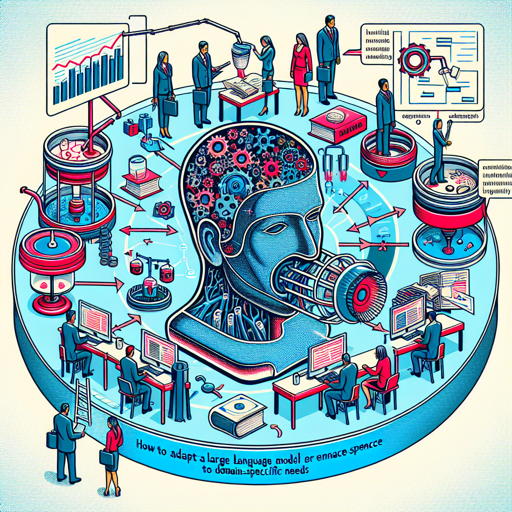Adapting large language models (LLMs) to specific domains can enhance their effectiveness and provide targeted responses. This article will guide you through the process of continual pre-training LLMs, particularly using the AdaptLLM framework developed from the foundational LLaMA-1-7B model. Whether you’re working in fields like biomedicine, finance, or law, understanding this process will be invaluable for leveraging AI effectively in your domain.
What is Continual Pre-Training?
Continual pre-training is a methodology that allows a language model to learn and refine its knowledge by incorporating specific domain-related texts into its training corpus. This ensures the model not only retains general knowledge but also acquires expertise in particular subjects. Imagine teaching a student about various subjects and then giving them specialized courses in their field of interest. As they dive deeper into those subjects, their understanding and capability flourish.
Getting Started with AdaptLLM
To implement the adaptation process, follow these steps:
- Access the [AdaptLLM GitHub Repository](https://github.com/microsoft/LMOps/tree/main/adaptllm) for the latest tools and benchmarking codes.
- Visit the [Hugging Face page for AdaptLLM](https://huggingface.co/instruction-pretrain) to download the appropriate model for your domain.
- Utilize the specific domain corpus to train the model further. For financial applications, use financial texts; for law, use legal documents.
- Monitor the model’s performance using benchmarks to ensure it meets the required standards in your domain.
Code Example for Finance Adaptation
Here’s a Python code example to utilize the finance base model:
from transformers import AutoModelForCausalLM, AutoTokenizer
model = AutoModelForCausalLM.from_pretrained("AdaptLLM/finance-LLM")
tokenizer = AutoTokenizer.from_pretrained("AdaptLLM/finance-LLM", use_fast=False)
# Put your input here:
user_input = '''Use this fact to answer the question: Title of each class Trading Symbol(s) Name of each exchange on which registered
Common Stock, Par Value $.01 Per Share MMM New York Stock Exchange
MMM Chicago Stock Exchange, Inc.
1.500% Notes due 2026 MMM26 New York Stock Exchange
1.750% Notes due 2030 MMM30 New York Stock Exchange
1.500% Notes due 2031 MMM31 New York Stock Exchange
Which debt securities are registered to trade on a national securities exchange under 3M's name as of Q2 of 2023?'''
# Simply use your input as the prompt for base models
prompt = user_input
inputs = tokenizer(prompt, return_tensors="pt", add_special_tokens=False).input_ids.to(model.device)
outputs = model.generate(input_ids=inputs, max_length=2048)[0]
answer_start = int(inputs.shape[-1])
pred = tokenizer.decode(outputs[answer_start:], skip_special_tokens=True)
print(f'### User Input:\n{user_input}\n\n### Assistant Output:\n{pred}')Troubleshooting Common Issues
As you work with domain-specific adaptations, you may encounter several challenges. Here are some common issues and their solutions:
- Model not returning expected results: Ensure that your input prompt is clear and well-structured. The model’s performance heavily relies on the quality and clarity of the prompt.
- Inaccurate outputs: If the model struggles with accuracy, consider retraining it with more relevant or diverse domain data to improve its understanding.
- Installation errors: If you face issues during package installations, verify that your Python environment is properly set up, and required libraries are installed correctly.
- Resource limitations: Running large models might require substantial memory. Consider utilizing cloud resources or GPUs to optimize performance.
For more insights, updates, or to collaborate on AI development projects, stay connected with fxis.ai.
Conclusion
In sum, adapting large language models to specific domains through continual pre-training holds significant promise for enhancing AI capabilities. By following these steps and addressing potential challenges effectively, you can harness the full potential of these advanced models in your desired fields.
At fxis.ai, we believe that such advancements are crucial for the future of AI, as they enable more comprehensive and effective solutions. Our team is continually exploring new methodologies to push the envelope in artificial intelligence, ensuring that our clients benefit from the latest technological innovations.

